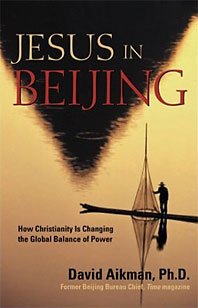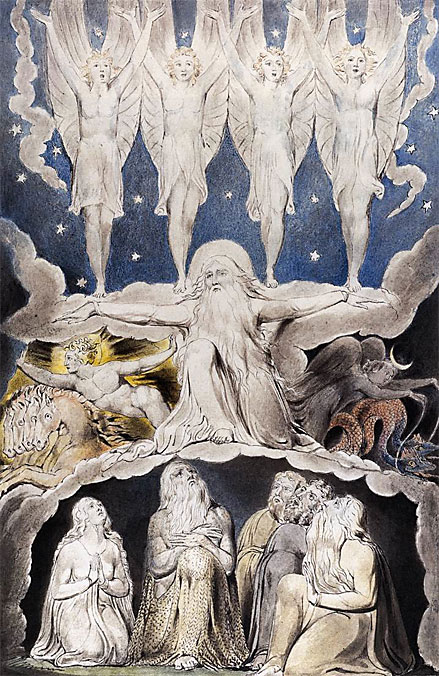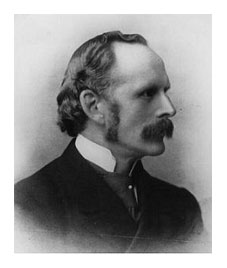Nov
13
2009

.
or The Root of Democracy is the Spirit of Christ
An excerpt from Jesus in Beijing: How Christianity is Transforming China and Changing the Global Balance of Power by David Aikman, Chapter 13: “Artists, Writers and Academics.”
This post is dedicated to the memory of the false premise of Christopher Hitchens.
Continue reading
1 comment | tags: China, Christopher Hitchens, Democracy, Mission, Philosophy | posted in Quotes
Nov
11
2009
 “Very much of human life is ‘there and back again,’ or chiastic. This is how God has designed human beings to live in the world. It is so obvious that we don’t notice it. But it is everywhere. This shape of human life arises ultimately from the give and take of the three Persons of God, as the Father sends the Spirit to the Son and the Son sends the Spirit back to the Father. We can see that literary chiasm is not a mere curiosity, a mere poetic device to structure the text. It arises from the very life of God, and is played out in the structure of the lives of the images of God in many ways and at many levels. It is because human beings live and move so often chiastically, that poets often find themselves drawn to chiastic writing. God creates chiasms out of His inner life, and so do the images of God.
“Very much of human life is ‘there and back again,’ or chiastic. This is how God has designed human beings to live in the world. It is so obvious that we don’t notice it. But it is everywhere. This shape of human life arises ultimately from the give and take of the three Persons of God, as the Father sends the Spirit to the Son and the Son sends the Spirit back to the Father. We can see that literary chiasm is not a mere curiosity, a mere poetic device to structure the text. It arises from the very life of God, and is played out in the structure of the lives of the images of God in many ways and at many levels. It is because human beings live and move so often chiastically, that poets often find themselves drawn to chiastic writing. God creates chiasms out of His inner life, and so do the images of God.
Continue reading
3 comments | tags: Chiasm, James Jordan | posted in Biblical Theology, Christian Life, Quotes
Nov
10
2009

Some excerpts from James Jordan’s thought-provoking 2 part article:
“The ordination of women to the Christian ministry, specifically the pastoral office of overseeing worship and performing preaching and the Lord’s Supper, is a recent development in Church history. From the early church until the late 20th century, women were never ordained as ministers, not in any branch of the Church, East or West, Protestant or Catholic. Only in a few sects, almost always anti-theological and/or ‘pentecostal,’ were women ‘ordained.’
It is today often assumed that the Church has been wrong about this, universally and consistently, for nearly 2000 years. This assumption holds that the Holy Spirit has either misguided the Church on this matter, or that the Spirit has allowed the Church to remain in error, for His own good reasons, and is only now correcting that error; it is assumed that only now has the Church grown and developed to the point where she is able to recognize this error.”
Continue reading
Comments Off | tags: Adam, James Jordan, Worship | posted in Biblical Theology, Quotes
Nov
7
2009

“…one of the most common sacrifices in Scripture is the OLAH, what is commonly translated burnt offering or whole burnt offering, but the word OLAH literally means “going up.” The “going up offering” or Ascension Offering reveals a foundational clue to all sacrifice. It establishes a central goal of every offering by fire. When a blameless animal is sacrificed, the blameless animal is going up, going up to God in smoke. God loves the perfect, he loves the blameless, and he loves them in his presence. He loves them and wants them to commune with him.
Continue reading
Comments Off | tags: Ascension, Job, Toby Sumpter | posted in Biblical Theology, Quotes
Nov
6
2009
J. Townsend posted a great Luther quote over at the AV forum, one that I really needed to hear today:
“Whenever the devil pesters you, at once seek out the company of friends, drink more, joke and jest, or engage in some form of merriment.”
Alone, we are more vulnerable to his intimidations. And I bet our get-togethers remind him of the party we’ll have at his destruction.
Comments Off | tags: Fellowship, Luther, Satan | posted in Quotes
Nov
5
2009
Some excellent thoughts on unity from Tim Nichols:
Endeavouring to Guard the Unity of the Spirit
It is a cherished dictum that as Christians, we are a community of faith and therefore our unity is based on doctrine. In fact, this very thing came up in a recent comment thread on another post here. I want to make it clear I’m not taking a shot at any of you who’ve discussed that matter here. I do, however, want to address the way this concept is often applied in the Christian world.
Continue reading
1 comment | tags: Tim Nichols | posted in Christian Life, Ethics, Quotes
Oct
30
2009
or Life in a Trinitarian Universe

Doug Jones writes:
Continue reading
Comments Off | tags: Culture, Doug Jones | posted in Christian Life, Quotes
Oct
27
2009
“What makes a man a good cricketer? Practice. What makes a man a good man? Practice. Nothing else.”
Henry Drummond on the fruits of the Spirit:
 .
.
Now the business of our lives is to have these nine things fitted into our characters. That is the supreme work to which we need to address ourselves in this world, to learn Love. Is life not full of opportunities for learning Love? Every man and woman every day has a thousand of them. The world is not a play-ground; it is a schoolroom. Continue reading
Comments Off | tags: Henry Drummond, Love, Temptation | posted in Christian Life, Ethics, Quotes
Oct
25
2009
“Wisdom and virtue are not found in mastering desire, but in the maturing of desire.”
From Peter Leithart yesterday:
 Carey Ellen Walsh (Exquisite Desire
Carey Ellen Walsh (Exquisite Desire ) points to the difference between classical responses to desire and the account of desire in the Song of Songs. Using Odysseus and the Sirens as an illustration, she notes how this scene reveals the Greek instinct that desire “harbors danger by rendering its victim under its spell.” To counter desire, one needed to exercise rational management and control: “The Greek philosophical tradition placed desire under the care of rationality. Hence, Odysseus did just what desire calls for; he bested emotion with a reasoned plan. Under this classical influence, Foucault argues, desire became for the West largely something to manage, dominate, and even defeat.” Sexual desire needed to be controlled, and that control is what makes someone virtuous.
) points to the difference between classical responses to desire and the account of desire in the Song of Songs. Using Odysseus and the Sirens as an illustration, she notes how this scene reveals the Greek instinct that desire “harbors danger by rendering its victim under its spell.” To counter desire, one needed to exercise rational management and control: “The Greek philosophical tradition placed desire under the care of rationality. Hence, Odysseus did just what desire calls for; he bested emotion with a reasoned plan. Under this classical influence, Foucault argues, desire became for the West largely something to manage, dominate, and even defeat.” Sexual desire needed to be controlled, and that control is what makes someone virtuous.
Continue reading
Comments Off | tags: Peter Leithart, Song of Songs | posted in Christian Life, Quotes
Oct
24
2009
“Certain Protestants say, it is a true sign of a very gracious state when a man feels and deplores his inbred corruptions. How near do these come to the Papists, whose doctrine they profess to detest and abhor! The truth is, it is no sign of grace whatever; it only argues, as they use it, that the man has got light to show him his corruptions; but he has not yet got grace to destroy them. He is convinced that he should have the mind of Christ, but he feels that he has the mind of Satan; he deplores it, and, if his bad doctrine do not prevent him, he will not rest till he feels the blood of Christ cleansing him from all sin.
True humility arises from a sense of the fullness of God in the soul; abasement from a sense of corruption is a widely different thing; but this has been put in the place of humility, and even called grace.”
—Adam Clarke on 1 Cor. 13.
Comments Off | tags: Adam Clarke, Holiness | posted in Christian Life, Quotes
































